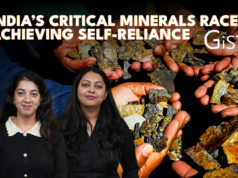NEW DELHI: Week one of the biggest repatriation of Indians since the 1990 Gulf War, will see five flights operating from Singapore from May 7-13. Scheduled to return are 3,500 Indians registered with the High Commission. In an exclusive chat with StratNews Global’s Amitabh P Revi, High Commissioner Jawed Ashraf describes the preparation for the evacuation including helping those who had lost their jobs. He said the Singapore government stepped in to make sure salaries were paid even when the workers were under lockdown. The high commission and the local Indian community helped with cooked food, dry ration delivery and counselling.
Ashraf said it was important to understand how Singapore fell from a global gold standard of handling the pandemic to being hit by the second wave of the virus. With 18 percent of the population comprising foreign workers Singapore, he said, is now debating laws governing living standards of foreign workers forced to endure crowded dormitories that have contributed to the second wave of the pandemic.
India and Singapore are also working at keeping crucial supply chains open especially with regard to key medical and other essentials. Prime Ministers Lee Hsien Loong and Narendra Modi have been in touch with the former assuring the latter that migrant labour will be treated at par with Singapore citizens.
Ashraf also recounted the role of actors Rajinikanth and Kamal Haasan whose messages of support helped reassure the workers from Tamil Nadu. Similarly, cricketer Sachin Tendulkar urged them to heed the advice of the Singapore government and observe safe distancing norms.
Jawed Ashraf is a senior officer of the Indian Foreign Service who has just completed his tenure in Singapore. He will be moving to France as Ambassador shortly. He was earlier in the Prime Minister’s Office, was joint secretary Americas in the Ministry of External Affairs and has served in India’s missions in Washington DC, Kathmandu and Berlin among others. His coffee table book of photographs on the victims of the 2015 Nepal earthquake titled A Day in the Life of Kathmandu, was widely appreciated for its sensitive portrayal of an enormous human tragedy.
The 'Eye' of the story not the 'I' of the story. That's Amitabh Pashupati Revi's credo from the beginning of his professional journey in 1995. From conflicts in the war zones of Afghanistan, Syria, and Iraq to nuances of international politics in the Maldives,Thailand, and South Sudan, Amitabh has reported from all the world's continents, except for Antarctica(so far). Though, he has documented the world's third pole, the Siachen Glacier!
Amitabh reports and produces documentaries on the two-front China-Pakistan threat to India. His ground reports from Arunachal Pradesh and Ladakh have received viewership in the hundreds of thousands. Amitabh has interviewed world leaders, top global analysts, and experts in India, Russia, the United States, and Australia as well. Along the way, he’s picked up the Russian language, the Ramnath Goenka Award for his reporting on the 'Islamic State' terrorist group in Iraq, the Khaled Alkhateb Award for his reporting from Palmyra, Syria, and the UN Dag Hammarskjöld Distinguished Journalist Fellowship. Last but not least, as a founder member of StratNews Global, Amitabh helps lead the reporting, editorial, production, and administration teams at StratNews Global, BharatShakti, and InterStellar on their journey ahead.




